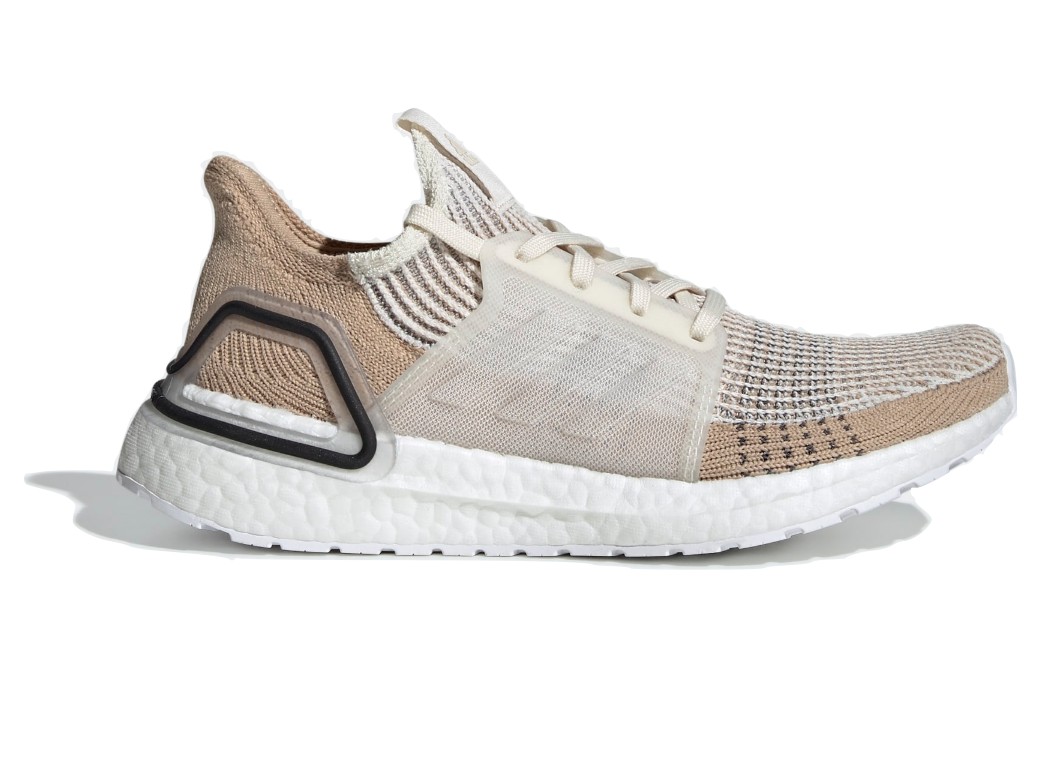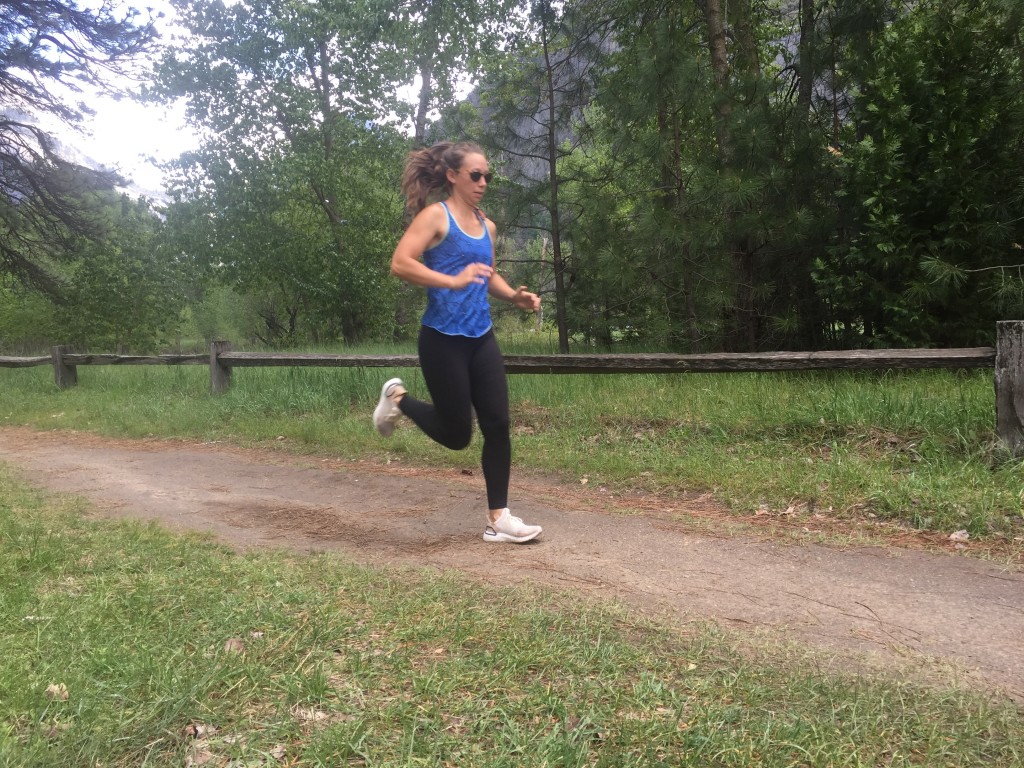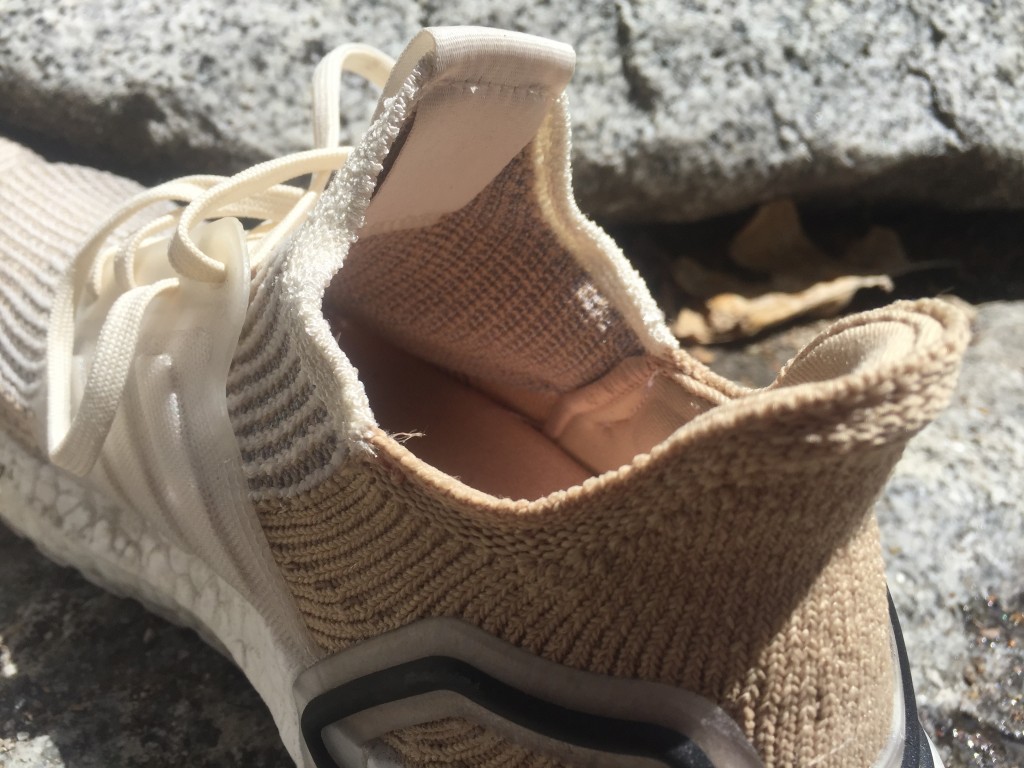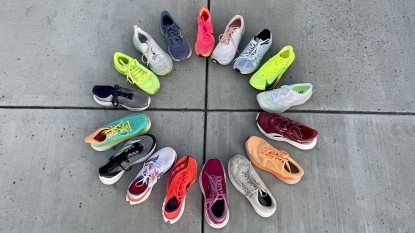Adidas Ultraboost 19 - Women's Review
Our Verdict
Our Analysis and Test Results
The Adidas Ultraboost 19 has high scores in a few metrics, but its low numbers in upper comfort, support, and weight caused it to fall behind its competitors in overall performance.
Performance Comparison
Landing Comfort
No matter what type of running we're setting out to do, whether it's our Sunday long run or our Wednesday interval workout, we need to protect our bodies from the impact. “Landing comfort” is the term we use to determine how much cushioning there is in each shoe's step and how well said cushioning keeps us feeling protected.
The Ultraboost has a surprising amount of cushioning, more so than the similarly-designed Reebok Floatride. The amount of underfoot padding is akin to the amount on the Brooks Adrenaline GTS, our Editors' Choice Award winner, as well as the Hoka Clifton, but we found those to be a bit softer and nicer to land on. While the Floatride looks similar to this product at first glance, the Ultraboost has more cushioning; for runners eager to try this new style, we'd recommend the Boost for those looking for a bit more cushion in their step.
Responsiveness
“Responsiveness” describes a shoe's ability to respond to the kinetic energy that we put in our steps. In general, the more cushioned a shoe, the less responsive it is, but we didn't find this to be true for the Ultraboost.
While this shoe is not quite as responsive as some, it's surprisingly bouncy for how much cushioning is in its heel, making an excellent speed work shoe. If track workouts or intervals are your thing, you might find what you're looking for in this product's responsive sole.
Upper Comfort
After we figure out what kind of step a shoe produces, we set out to look at how it feels on the rest of our foot. There are a lot of factors that contribute to a shoe's “upper comfort,” but we mainly looked at tongue and heel padding, breathability, and material softness to determine each product's overall score in this category.
The Ultraboost, like the Floatride, has a unique design. With a sock-like, seamless upper and a plastic, cage-like lateral support held together by the laces, this is not your traditional running shoe. This product is unlike any we've ever seen, and we weren't sure what to make of it at first. The material is reasonably comfortable and breathable, while the knit material is soft, but not as cozy as the insides of the Brooks models we tested.
The fit of the upper is a bit strange. The tongue and heel are exceptionally high, which makes them easier to put on and take off, but we didn't exactly love the fit of the heel (though this varies significantly, depending on your foot shape). There is a small amount of cushioning in the heel, but nothing compared to the luxurious Brooks Glycerin. The tongue is not padded at all, and we wish there was a bit of cushioning under the laces to help protect the tops of our feet.
Stability
Many shoes on the running market today sell themselves as “stability” shoes. These products aim to correct the runner's gait, especially from overpronating. Not everyone needs a stability-focused shoe, but every runner does need a bit of lateral support to create a more secure run.
The Ultraboost has very little stability, simple as that. Some runners will like its minimalist structure, as the foot is allowed freedom to do as it pleases. The plastic “cage” provides a bit of lateral support, but while we could achieve a snug fit in the midfoot, this didn't stop us from rolling our ankles on any even steps. Because of the Ultraboost's minimalist upper, we wouldn't recommend this to the average runner looking for a traditionally built shoe.
Weight
As far as weight is concerned, we urge our readers to look for shoes within a certain range. It's not worth comparing fractions of ounces in running shoes, but it is worth looking to the extremes and deciding how heavy or light you're willing to go. The range of weights in this review was from 6.8 ounces per shoe to 9.8 ounces, which is a considerable difference, and one we noticed with every step.
The Ultraboost is surprisingly one of the heaviest shoes that we tested. At 9.8 ounces per shoe, we're not exactly sure where all that weight is coming from; with such a minimal upper, we assume that the weight must be packed into the sole. While other heavy shoes that we tested put some of their weight in the upper (super comfy tongues and heels, for example), this shoe's weight felt off-balance on our feet. The lack of cushioning on the top of the shoe made it challenging to lift the weight from the sole, making for one of our least favorite strides. The Floatride, on the other hand, is only 7.2 ounces, which feels like a more appropriate weight for such a minimalist design.
Best Applications
It's hard for us to pin down the perfect use for the Ultraboost 19 since its combination of responsiveness, weight, and upper comfort don't seem to line up with its competitors. It's a decently responsive shoe with a minimalist upper, which would make for a great speed shoe - except for the heavy weight. Because this shoe has such a different design, we'd highly recommend trying it on before purchasing.
Value
The Ultraboost 19 from Adidas is a costly shoe. At a whopping $180, this product is much more expensive than the vast majority of shoes that we tested, and we have a hard time justifying it. This product is one of the heaviest and least comfortable shoes we tried, meaning we're not going to spending big bucks on it any time soon.
Conclusion
The Adidas Ultraboost 19 is a new product with a fresh design idea; unfortunately, it falls flat of our expectations. With minimal support and a whole lot of weight packed into the sole, we didn't think this shoe was particularly comfortable. With an expensive price tag to boot, we're not going to recommend this shoe for the average runner.










